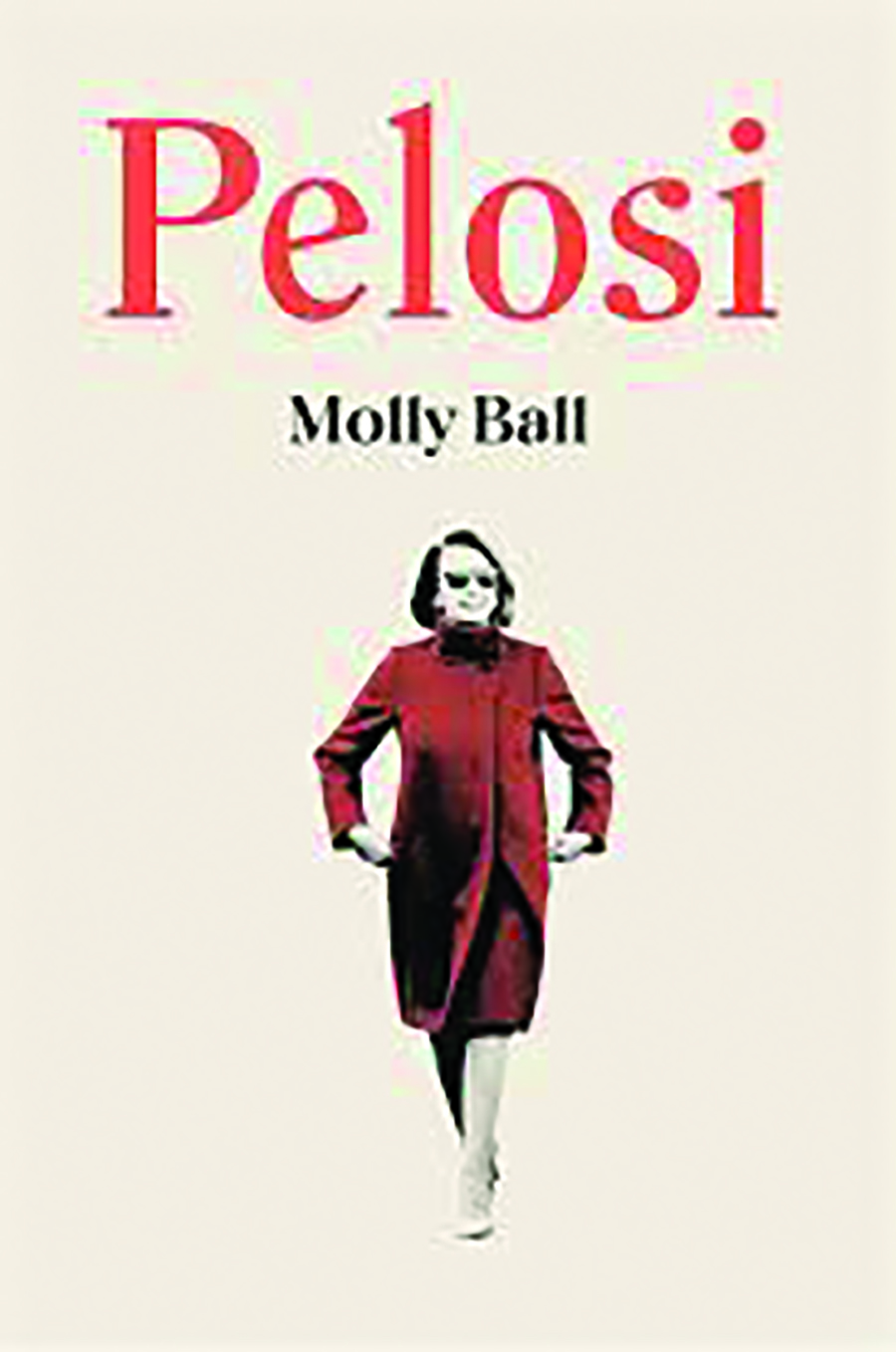If Sen. Elizabeth Warren hadn’t launched her presidential campaign with a live Instagram video and forced her husband on camera, I doubt we would have ever known what he looked like. We learned more about Sen. Amy Klobuchar’s ex-boyfriends, some of whom contributed $17,000 to her first Senate campaign, than about the husband she wished to make the first gentleman of the United States.
Nancy Pelosi, the first female speaker of the House, is arguably the most powerful woman in politics. Yet compared to figures such as Warren and Klobuchar, her story is far from a straightforward odyssey of feminism. With remarkable detail and some less remarkable flattery of her subject, journalist Molly Ball attempts to reconcile this contradiction in her new biography, Pelosi.

Unlike Hillary Clinton, Pelosi didn’t marry into political stardom — she was born into it. Her father, Thomas D’Alesandro Jr., was a member of Congress and later the mayor of Baltimore (a position subsequently held by her brother), and she grew up surrounded by Democratic royalty. By 1987, when she was first elected to represent San Francisco in the House of Representatives, she had already lived an entire life. At 47, she had raised five children to adulthood and become a fundraising socialite for the California Democrats, leading her to be named the head of the California Democratic Party in 1981 and to host the Democratic National Convention in 1984.
Ball describes these successes in fawning detail, but she can’t quite make Pelosi’s silver-spoon upbringing fit with the narrative of feminist heroism that she’d like to tell.
Ball spends ample time detailing Pelosi’s birthright connections, from her front-row seats to John F. Kennedy’s inauguration (from her father) to her leg up in Californian politics (from her brother’s friendship with San Francisco Mayor Joe Alioto). Ball acknowledges that Pelosi, a product of the Baltimore Democratic machine, actively touted her familial connections in her pursuit of power. But she ultimately downplays the legacy angle, choosing instead to lament that Pelosi’s role as a mother limited her political ambitions until middle age.
After the deaths of Phillip and Sala Burton, the husband and wife who spent nearly a quarter century representing San Francisco in the House, Pelosi asked her youngest daughter, Alexandra, whether she should run to represent California’s 5th District. Alexandra replied that her mother should “get a life.”
“The colloquialism, which was new to Pelosi, touched on a harsh truth: for all of Pelosi’s trials, for all her hard work, she had not really had her own life up until this point,” Ball writes. Again and again, Ball notes Pelosi’s decision to marry and have children straight out of college with a hint of regret. “Sometimes she still thought she might go to law school one day,” she writes of the young Pelosi. “But as her children grew older, her fate seemed settled. She was destined to become a San Francisco grande dame, serving on PTAs and museum boards and attending galas as her husband kept getting richer.”
But the “pampered, rich” Pelosi didn’t have to struggle much to avoid this bleak fate. Instead, positions of power were simply handed to her. In 1975, Alioto offered her a spot on the San Francisco Public Library Commission, and then prominent politicians such as State Assembly Speaker Leo McCarthy and Gov. Jerry Brown turned to her for fundraising connections.
“Her success was a testament to an important part of her skill set: the ability to see opportunities where others might not, and the brazenness to seize them,” Ball writes. “Pelosi was more than a housewife, more than a pocketbook, more than a hostess — she was a strategist.”
Sure, she was a strategist. That much is clear from her record in Congress. But passages such as these make it clear that Ball is more interested in writing a hagiography than a comprehensive biography.
Consider that, after spending four chapters detailing how Pelosi’s family connections gave her the clout to embark on a hotly contested congressional bid, Ball extols her for winning without using her family name. Technically, that’s true. But would she have had the apparatus to do so without using her name for half a century?
Ball rightly highlights Pelosi’s various moral crusades, some of which have since been thoroughly vindicated. Pelosi attacked both Presidents George H.W. Bush and Bill Clinton for prioritizing trade with China over human rights, and she remained wary of the ever-ambitious Clinton clan, unofficially supporting Barack Obama in the 2008 Democratic primary and paving the way for her first, ruthlessly effective tenure as speaker of the House.
But Ball’s reverence for Pelosi means that we never get a sense of who Pelosi actually is. She should be an interesting and complicated figure: a woman who quite literally had it all, from half a lifetime of domestic bliss to three decades and counting of political power. But Ball never gets into Pelosi’s head. This isn’t from a lack of sourcing but, seemingly, from an abundance of care for Pelosi and her inner circle. Ball concludes that Pelosi “is a private person, and her inner life is fundamentally off limits.” That’s hardly satisfying when the rest of her reporting is so meticulous.
And so, the story of the most powerful woman in our nation’s history is almost boring. We never learn about her inner life, her pains and passions, just the bullet points of a career that reads as no more monumental than that of any other successful politician. Ball’s book is ultimately as shallow as the memefied image of Pelosi, adorned in Max Mara, that appears on its cover.
Tiana Lowe is a commentary writer for the Washington Examiner.
